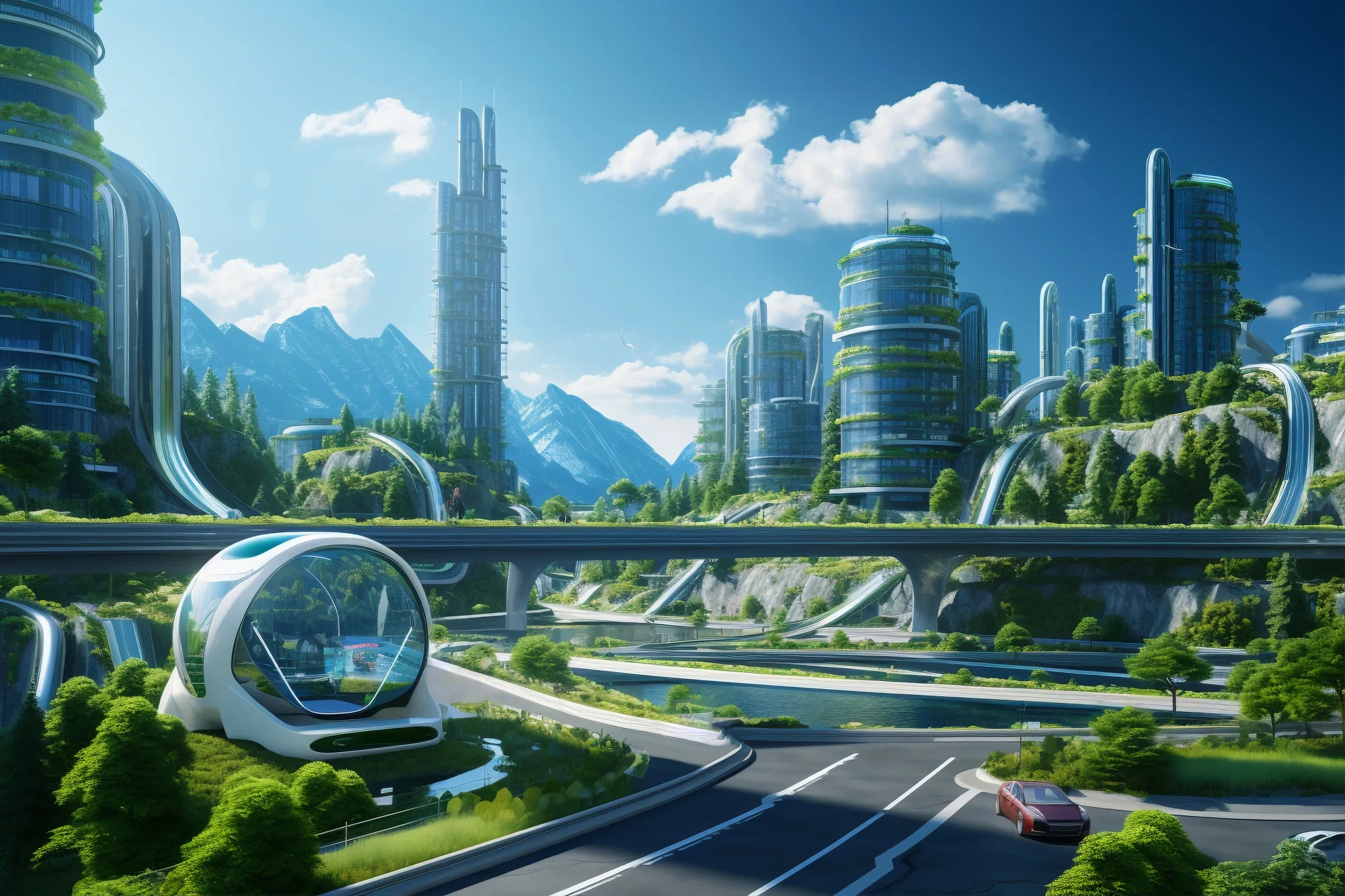Green Tech: Sustainable Innovations Powering a Greener Future

As concerns about climate change and environmental degradation grow, the push for green technology, or green tech, has become more urgent than ever. Green tech encompasses a wide range of innovations aimed at promoting sustainability, reducing carbon footprints, and conserving natural resources. Here’s a look at how sustainable innovations are powering a greener future and transforming industries.
1. Renewable Energy Sources
Renewable energy is at the forefront of green tech, providing cleaner alternatives to fossil fuels.
- Solar Power: Advances in solar panel efficiency and storage solutions have made solar energy more accessible and cost-effective. Innovations like solar shingles and flexible solar panels are expanding the applications of solar technology.
- Wind Energy: Wind turbines are becoming more efficient and less intrusive, with offshore wind farms emerging as significant contributors to the energy grid. Floating wind turbines are also being developed to harness wind energy in deeper waters.
- Hydropower: Modern hydropower plants utilize innovative designs to minimize environmental impact while maximizing energy production. Small-scale hydro systems are being deployed in rural areas to provide sustainable energy.
2. Energy Storage Solutions
Effective energy storage is crucial for the stability and reliability of renewable energy sources.
- Battery Technology: Lithium-ion batteries have seen significant improvements in capacity and lifespan. Emerging technologies like solid-state batteries promise even greater energy density and safety.
- Grid Storage: Large-scale energy storage systems, such as pumped hydro storage and grid-scale batteries, help balance supply and demand, ensuring a stable energy supply from renewable sources.
- Home Energy Storage: Homeowners are increasingly adopting battery storage systems like the Tesla Powerwall, enabling them to store excess solar energy for use during peak demand or power outages.
3. Sustainable Transportation
Green tech is revolutionizing transportation, making it more sustainable and efficient.
- Electric Vehicles (EVs): EVs are becoming more mainstream with advances in battery technology, increased range, and expanded charging infrastructure. Innovations in wireless charging and battery swapping are further enhancing EV adoption.
- Public Transport: Electric buses, trams, and trains are reducing urban air pollution and reliance on fossil fuels. Autonomous and shared electric vehicles are also being developed to improve transportation efficiency.
- Alternative Fuels: Biofuels, hydrogen fuel cells, and synthetic fuels offer cleaner alternatives for powering vehicles, especially in sectors where electrification is challenging, such as aviation and shipping.
4. Green Building and Construction
Sustainable building practices are reducing the environmental impact of construction and improving energy efficiency.
- Eco-friendly Materials: The use of sustainable materials like bamboo, recycled steel, and reclaimed wood is gaining popularity. Innovations in bioplastics and carbon-negative materials are further reducing the carbon footprint of construction.
- Energy-efficient Design: Green buildings incorporate energy-efficient designs, such as passive solar heating, natural ventilation, and green roofs, to reduce energy consumption. Smart building technologies optimize energy use and improve indoor environmental quality.
- Net-Zero Buildings: The concept of net-zero buildings, which generate as much energy as they consume, is becoming more feasible with advancements in renewable energy integration and energy storage.
5. Agricultural Innovations
Sustainable agriculture is essential for food security and environmental conservation.
- Precision Farming: IoT and AI technologies enable precision farming practices that optimize resource use, reduce waste, and increase crop yields. Drones and sensors monitor soil health, moisture levels, and crop conditions in real-time.
- Vertical Farming: Vertical farming and hydroponics allow for year-round cultivation in controlled environments, reducing the need for pesticides and water while maximizing space utilization.
- Sustainable Practices: Organic farming, crop rotation, and agroforestry are promoting soil health and biodiversity, reducing the environmental impact of agriculture.
6. Waste Management and Recycling
Innovative waste management and recycling solutions are crucial for a sustainable future.
- Recycling Technologies: Advanced recycling technologies are improving the efficiency and scope of recycling processes, enabling the recovery of valuable materials from electronic waste and plastics.
- Circular Economy: The circular economy model emphasizes reusing, repairing, and recycling products to minimize waste and extend the lifecycle of materials.
- Composting: Organic waste composting is being adopted on a larger scale, converting food and yard waste into valuable compost for agriculture and landscaping.
Conclusion
Green tech is driving the transition to a more sustainable future by promoting renewable energy, improving energy storage, revolutionizing transportation, and advancing sustainable practices across various industries. As these innovations continue to develop, they offer the promise of a cleaner, greener, and more resilient world. Embracing and investing in green tech is not just a necessity but an opportunity to build a sustainable future for generations to come.










